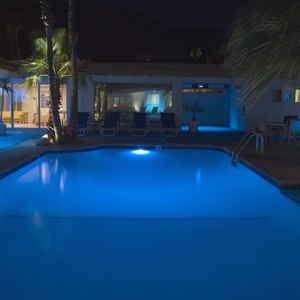
The traditional way to buy a timeshare unit is direct from the developer. Whether you take a promotional tour or you research the unit online and purchase it, you pay the developer's price and get the developer's promotions. You can also buy your timeshare unit from an existing owner who no longer wants his unit. While resale units are usually available at a discount, some also have significant disadvantages.
Lack of Promotional Extras
When you buy a timeshare through the traditional direct-from-developer route, you can usually get some promotional extras. Whether you get a deeply discounted vacation, tickets to expensive shows while you're on your vacation, or cash or a gift card, the value of the incentives can add up. When you buy from another owner, you probably won't get any of those incentives.
Limited Financing Options
Many developers offer financing with their timeshare programs. This makes it easy for you to buy from them, and makes it easy for them to sell their inventory. While financing does exist for resale timeshares, the options are more limited and can be more expensive. As such, if you want to buy a timeshare on the resale market, you may need to pay cash.
Limited Discount Opportunity
Sometimes, you can get a great discount when you buy a resale timeshare. However, at other times, after you've negotiated a good deal, the developer may buy it out from under you. Some developers, like Disney, Marriott and Hilton, put a clause in their timeshare contracts that gives them a "right of first refusal." This clause lets them buy back units that are going to sell at a very low price, helping to protect the value of existing owners' properties. While you can still get a discount by buying one of these properties, it may not be as deep as you expect.
Amenity Restrictions
While the timeshare unit and rights to the property that you buy on the resale market should be the same as what you buy from a developer, the extra amenities can be different. To incentivize buying units on a direct basis, some developers limit your rights when you buy a resale unit. While the rules vary by developer, you might not be able to trade your unit for other units owned by the same company. As another example, some hotel programs won't let you trade a resale unit for points in the hotel's frequent-stay reward plan. If you're planning to use these features, a resale unit might not be the right choice for you.
Limited Remaining Life
Some timeshare contracts are written for a set number of years. For example, the timeshare may expire 50 years from when it is sold. Since a resale timeshare is already part of the way through its contract life, you may find yourself buying a unit that won't last as long as you anticipate. On the other hand, you may also be able to find a particularly good deal on a unit that is nearing the end of its contract life.
References
- Orlando Sentinel: Disney Aims to Boost Direct Time-Share Sales by Restricting Resales
- SellingTimeshares.net: Hilton Right of First Refusal Video
- TimeshareLending.net: Home Page
- TUG - The Timeshare Users Group: Timesharing 101 - A TUG Introduction to Timesharing
- Federal Trade Commission. "Timeshares and Vacation Plans." Accessed April 20, 2020.
Writer Bio
Steve Lander has been a writer since 1996, with experience in the fields of financial services, real estate and technology. His work has appeared in trade publications such as the "Minnesota Real Estate Journal" and "Minnesota Multi-Housing Association Advocate." Lander holds a Bachelor of Arts in political science from Columbia University.

